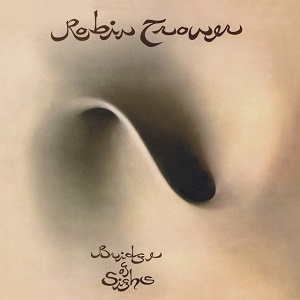Report: Satellite Radio Sings A New Tune As It Eyes Merger
February 20, 2007, 17 years ago
Grant Robertson has issued the following report from Globe and Mail:
XM Satellite Radio and Sirius Satellite Radio will fast-track production of receivers capable of receiving both services if a proposed merger of the two companies is allowed by U.S. regulators.
Sirius chief executive officer Mel Karmazin said Tuesday morning on a conference call with analysts that the two companies are planning a revamp of their technology if they are allowed to join forces. His comments came after XM and Sirius announced Monday they reached an agreement to form a $13-billion (U.S.) satellite radio giant.
The two companies have worked on developing technology in the past that could carry both companies' signals. However, those radios never made it to market since both companies were reluctant to introduce that technology while they were rivals.
Both the Sirius and XM signals will be maintained for the foreseeable future so existing customers won't have to replace their receivers immediately, including those who have bought factory installed receivers in new cars, the companies said.
The proposed merger, which analysts estimate could lead to savings in the billions for the two struggling companies, will drive the companies to combine signals and content and introduce the versatile radio receivers.
“We will be able to speed introduction of radios offering content from both our services today, something that has been challenging as separate companies,” Mr. Karmazin said.The proposed merger requires shareholder approval, which could take four months, the companies expect. The deal could close by the end of 2007 if regulators approve the transaction, which would create a monopoly in North American satellite radio.
XM and Sirius were granted licences to operate in the United States in the late 90s and affiliate services of XM and Sirius were granted permission to launch in Canada in 2005. XM Canada is publicly traded while Sirius Canada is privately owned through CBC, Standard Broadcasting and its U.S. parent.
The industry has amassed significant losses in both the U.S. and Canada as the companies compete to draw subscribers to the service, which offers roughly 100 channels of music and talk programming for roughly $15 a month.
In an effort to build their subscriber base, the companies have been spending heavily on marketing, and to subsidize the radio receivers for consumers, while battling to sign celebrity hosts such as Howard Stern, Oprah Winfrey and Martha Stewart to lucrative contracts.
Sirius inked Mr. Stern to a five year $500-million (U.S.) deal, while XM opened its chequebook to get the 11-year rights to Major League Baseball games for $650-million (U.S.).
“The long term success of this business rests on growing our subscriber base,” XM chairman Gary Parsons said. “Satellite radio has the burden of not just selling a service but a device as well.”
Mr. Parsons and Mr. Karmazin said the deal will save the companies money if it is allowed to proceed, since a greater portion of revenue will be realized as cash flow, if overlapping expenses, such as marketing, administration and satellite infrastructure, can be eliminated.
U.S. regulators have suggested that the proposed deal will face an uphill battle, since there is a provision in the licences of either company preventing them from merging.
Officials with the Federal Communications Commission made similar comments in January after rumours began circulating of a potential deal. However the head of the FCC also said at the time that the licences could be rewritten to allow for consolidation if a compelling case is made by the companies.
It is expected the satellite radio companies will argue that the market has changed dramatically since they were first granted licences roughly a decade ago. The introduction of iPods, which can store vast catalogues of music, and Internet radio, has altered consumer habits.
Satellite radio originally began as an alternative to commercial broadcast radio, however the industry has been expanding its business model as well. XM and Sirius have branched out into a variety of platforms including Internet distribution of their programming and transmission to portable devices such as cell phones.
The Canadian affiliates of XM and Sirius launched in late 2005 — well into the rise of the iPod — and the industry has tried to differentiate itself in the market by targeting consumers who want to listen in their cars, or those who want unique programming, such as a 24-hour NHL channel.
If the U.S. deal is permitted, Canadian analysts say it will almost certainly lead to consolidation of the two services in Canada, since one of the companies would likely cease to exist.











